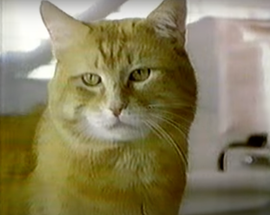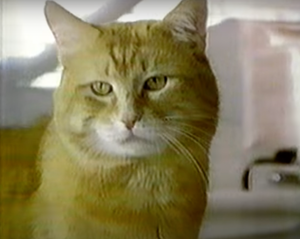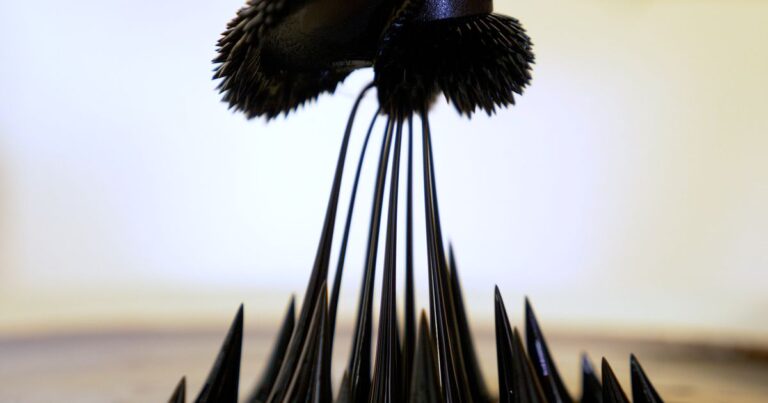
“From a marketing standpoint, it kind of makes sense,” she says.
“There has been a long-held belief that tri-colored cats have what has been coined “Tortitude” or tortoiseshell attitude,” Hedges says. “Tortoiseshells are known for being more spicy and sassy.”
The recent viral fame of an orange tabby named Jorts led to arguments about whether Jorts was less intelligent than other cats because he has orange fur. Some said it was unfair and prejudicial to judge the cat on its appearance. Orange cats also are pop culture favorites. Morris the Cat, the 9 Lives cat food mascot, as well as comic-strip cats Garfield and Heathcliff, are orange. Hedges guesses that perhaps the creators of these characters had orange cats as pets, but notes the artists may have been influenced by the stereotype of orange cats as friendlier and more social.
Let’s look at the stereotypes: Orange tabby cats are considered by many to be the most gregarious of felines, though some, as seen with the bizarre Jorts and Jean saga, think orange tabby cats are also the least intelligent.
The idea that fur color dictates personality isn’t as crazy as it sounds. Some studies do show associations between coat color in other mammals and their behavior — silver foxes, for one. But that hasn’t been proven in domestic cats. And cat fur color can vary even within the same breed. The common domestic shorthair cat comes in many fur colors, so really, the stereotypes are often comparing apples to apples.
Orange cats: Friendly but dim?
Got a tortoiseshell cat? These cats can be from many different breeds, but have a distinctive tri-color coat. Does your tortie seem especially sassy and lively? That fits the stereotype about their color pattern, too.
“I’ve also heard that tuxedo cats tend to be more playful (than most cats).” Hedges says. “And of course, there’s been a long superstition surrounding black cats. And having lived with many different cats over the years, and working with many more in the shelter, I can say these stereotypes are not true. Each cat has their own unique personality.”
But is there really a medically known tie between cat fur color and personality or intelligence? People think so, but science doesn’t, Zarah Hedge, chief medical officer at the San Diego Humane Society, told me. Unlock the biggest mysteries of our planet and beyond with the CNET Science newsletter. Delivered Mondays.
‘Tortitude’ and playful tuxies
“Despite not having solid evidence linking coat color to personality, people, to some degree, likely make decisions on which cat to bring into their home based on this,” Hedge says. “It can set up people to have unrealistic expectations for how the cat will behave in the home.”
“I’ve definitely seen and worked with hundreds of orange tabby cats and seen a wide variety of personality types,” Hedge says. “I would say that a cat’s upbringing and socialization to humans, other animals and different environments plays a larger role (than fur color) in their overall personality and how they interact with humans.”
“While there could be some genetic components associated with coat color that also impact personality, there is little scientific evidence demonstrating this to be the case in domestic cats,” said Hedge, who has five cats of various colors.
Still, even if cats don’t act a certain way because of their fur color, we humans might think they will, and that can cause problems.






